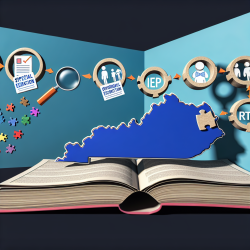Introduction
In the ever-evolving landscape of healthcare, the integration of machine learning methodologies offers promising avenues for enhancing patient care and outcomes. A recent study titled "Application of machine learning methodology to assess the performance of DIABETIMSS program for patients with type 2 diabetes in family medicine clinics in Mexico" provides valuable insights into how these advanced techniques can be leveraged to improve diabetes management. This blog explores the key findings of the study and how practitioners can implement these insights to enhance their skills and encourage further research.
Understanding the DIABETIMSS Program
The DIABETIMSS program is a comprehensive model of care designed to improve glycemic control among patients with type 2 diabetes (T2D) in Mexico. By utilizing a multidisciplinary team approach, the program aims to deliver coordinated healthcare and education on self-care and prevention of complications. The study analyzed data from 78,894 T2D patients across 11 family medicine clinics, using machine learning techniques to assess the program's effectiveness.
Key Findings
The study revealed that the DIABETIMSS program resulted in a 5% improvement in glycemic control among patients. Notably, patients with fewer complications experienced greater benefits from the program. The use of machine learning methods, such as Targeted Learning and Super Learning, allowed for a nuanced analysis of patient data, identifying sub-groups that benefited most from the program. This approach highlights the potential of machine learning to provide both population-level insights and targeted interventions.
Implications for Practitioners
For healthcare practitioners, the findings underscore the importance of integrating machine learning techniques into routine clinical practice. By doing so, practitioners can:
- Enhance patient stratification and tailor interventions to specific sub-groups.
- Utilize routine observational data to inform decision-making and improve patient outcomes.
- Adopt a multidisciplinary approach to care, focusing on patient education and self-management.
Furthermore, the study encourages practitioners to explore machine learning methodologies to evaluate the effectiveness of healthcare programs and interventions.
Encouraging Further Research
The study opens avenues for further research into the application of machine learning in healthcare. Researchers are encouraged to:
- Investigate the long-term impacts of machine learning-driven interventions on patient outcomes.
- Explore the scalability of programs like DIABETIMSS in different healthcare settings.
- Develop new machine learning models that can handle complex healthcare data structures.
By continuing to explore these areas, researchers can contribute to the development of more effective and efficient healthcare solutions.
Conclusion
The integration of machine learning methodologies in healthcare holds significant promise for improving patient outcomes and optimizing care delivery. The DIABETIMSS program's success in enhancing glycemic control among T2D patients demonstrates the potential of these advanced techniques. Practitioners and researchers alike are encouraged to embrace these methodologies to drive innovation and improve healthcare quality.
To read the original research paper, please follow this link: Application of machine learning methodology to assess the performance of DIABETIMSS program for patients with type 2 diabetes in family medicine clinics in Mexico.










